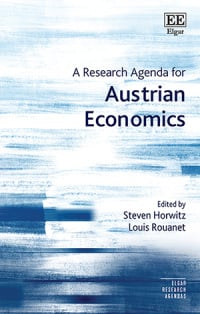
Hardback
Dollar Hegemony
Dollar hegemony is a defining structural feature of the modern international financial order, and it confers significant economic and political privileges on the US. This book explores the political economic foundations of and prospects for dollar hegemony.
More Information
More Information
Dollar hegemony is a defining structural feature of the modern international financial order, and it confers significant economic and political privileges on the US. This book explores the political economic foundations of and prospects for dollar hegemony.
The dollar’s hegemony rests on the economic, military, and international political power of the US. There have been two eras of dollar hegemony which were characterized by different models. Dollar hegemony 1.0 corresponded to the Bretton Woods era (1946-1971). Dollar hegemony 2.0 corresponds to the Neoliberal era (1980-Today). The deep foundation of both models is US power, but the two models have different economic operating systems. The articles in this book explore this and consider two further questions: what is the future of dollar hegemony? And: is there a better way of organizing the world monetary order? There has been considerable speculation of a drift to currency multipolarity but, so far, there is little evidence of that. The Chinese renminbi might join or displace the dollar as the world’s hegemonic currency, but that will require China making significant changes to its financial markets and monetary policy. Dollar hegemony imposes significant costs on developing and emerging market economies, but the international political economy of systemic reform is fraught, making reform unlikely.
Economists, researchers, policymakers, and students will find this volume an enlightening look at an important subject.
The dollar’s hegemony rests on the economic, military, and international political power of the US. There have been two eras of dollar hegemony which were characterized by different models. Dollar hegemony 1.0 corresponded to the Bretton Woods era (1946-1971). Dollar hegemony 2.0 corresponds to the Neoliberal era (1980-Today). The deep foundation of both models is US power, but the two models have different economic operating systems. The articles in this book explore this and consider two further questions: what is the future of dollar hegemony? And: is there a better way of organizing the world monetary order? There has been considerable speculation of a drift to currency multipolarity but, so far, there is little evidence of that. The Chinese renminbi might join or displace the dollar as the world’s hegemonic currency, but that will require China making significant changes to its financial markets and monetary policy. Dollar hegemony imposes significant costs on developing and emerging market economies, but the international political economy of systemic reform is fraught, making reform unlikely.
Economists, researchers, policymakers, and students will find this volume an enlightening look at an important subject.




